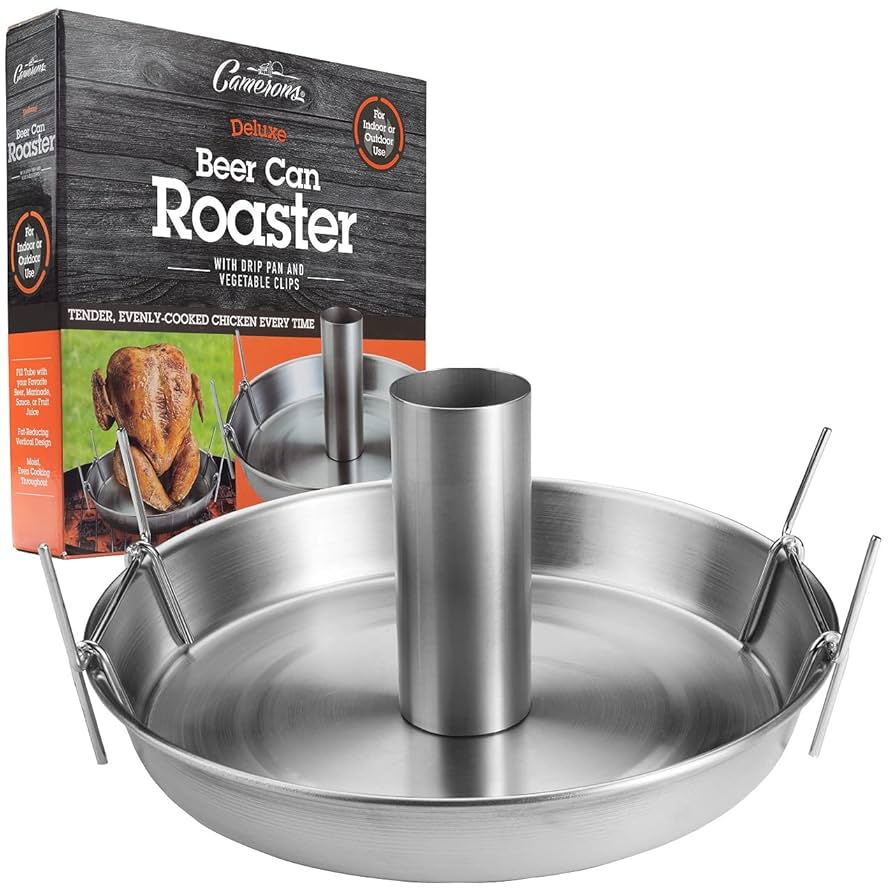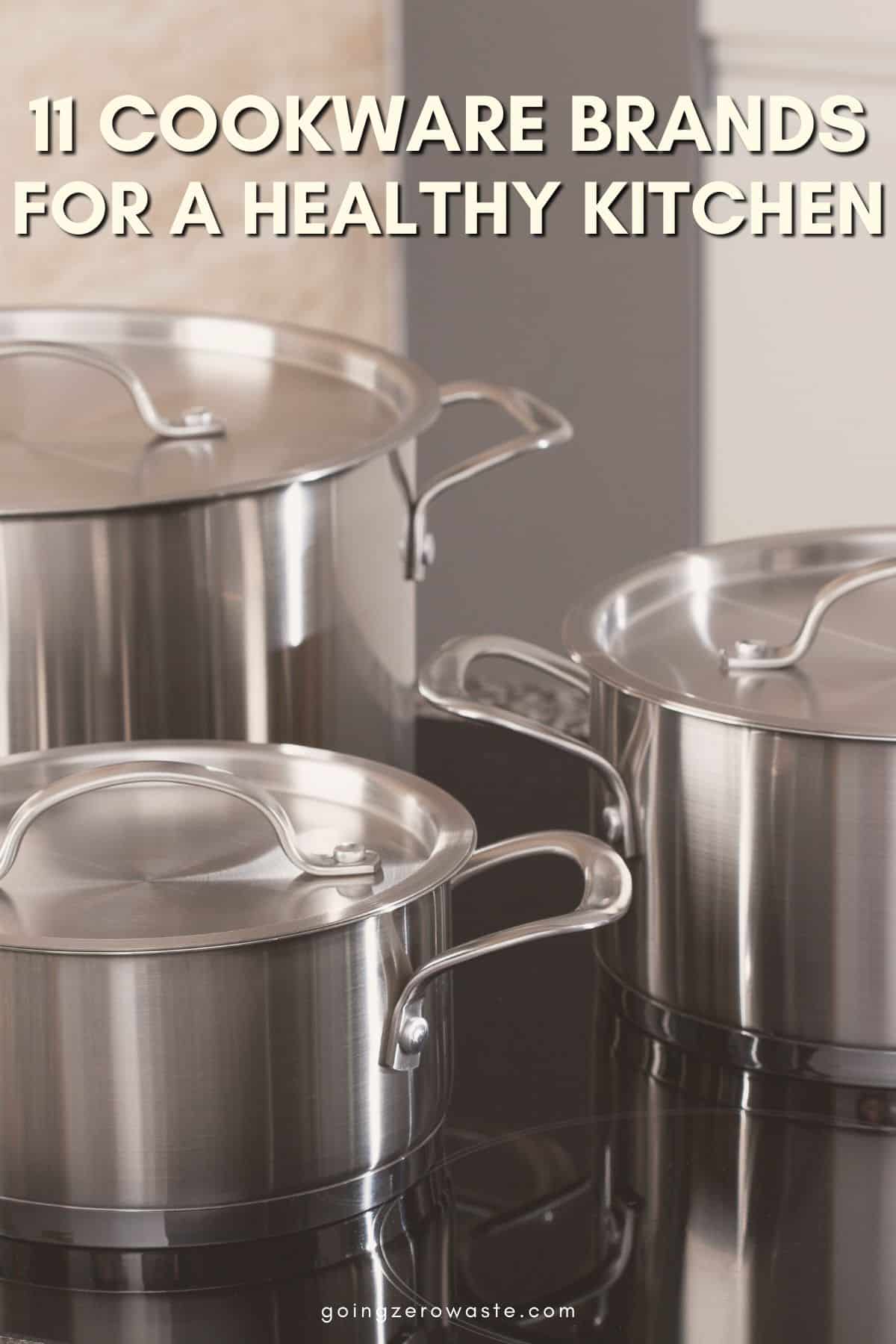Are you passionate about baking but concerned about the impact your bakeware might have on your health? You’re not alone.
With so many options available, choosing the healthiest bakeware can feel overwhelming. Imagine whipping up your favorite treats, confident that your kitchen tools are safe and non-toxic. This isn’t just about cooking; it’s about peace of mind. We’ll reveal the secrets of the healthiest bakeware options available today.
Keep reading to discover how you can make smart, health-conscious choices that enhance your baking experience and protect your well-being.

Credit: www.amazon.com
Importance Of Healthy Bakeware
Bakeware plays a crucial role in the kitchen. It affects the taste, texture, and healthiness of baked goods. Choosing the right bakeware can enhance not only your baking experience but also your health. Health-conscious bakers now seek materials that don’t release harmful chemicals. This shift emphasizes the need for healthier bakeware options. Let’s explore the significance of selecting safe bakeware.
Why Material Matters
Material choice affects your health. Some materials release toxins when heated. Non-stick coatings may contain harmful substances like PFOA. Ceramic and glass are safer options. They don’t emit dangerous chemicals. Stainless steel is another safe choice. It’s durable and free from harmful coatings.
Impact On Food Quality
Bakeware material can impact food quality. Metals can affect the taste of baked goods. Glass and ceramic provide even heat distribution. This results in better baking outcomes. Healthier bakeware can enhance flavors. It ensures a safe and tasty treat.
Long-term Health Benefits
Healthy bakeware supports long-term health. Avoiding toxic materials reduces health risks. This minimizes exposure to harmful chemicals. Choosing safe bakeware is an investment in your well-being. It supports a healthier lifestyle.
:max_bytes(150000):strip_icc()/4-of-the-Healthiest-Cooking-Oils-to-Use-f945bb02da434c7fb5d807fceb677e6f.jpg)
Credit: www.eatingwell.com
Common Bakeware Materials
When baking, the tools you use can make all the difference in your health journey. The materials of your bakeware might seem trivial, yet they play a crucial role in what ends up on your plate. From non-stick coatings to aluminum, ceramic, glass, and stainless steel options, each material has its pros and cons. Let’s take a closer look at these common bakeware materials and see which might be the healthiest choice for you.
Non-stick Coatings
Non-stick bakeware is famous for easy cleanup and reducing the need for added fats. However, not all non-stick coatings are created equal. Some can release harmful chemicals at high temperatures, so look for PFOA-free labels to ensure safety.
I’ve found that using non-stick muffin tins is a game-changer for quick breakfasts. But it’s essential to use them within their temperature limits to avoid any health risks. Do you often bake at high temperatures? If so, consider alternatives for those hotter recipes.
Aluminum Options
Aluminum is lightweight and conducts heat well, making it a popular choice for many bakers. Yet, concerns about aluminum leaching into food have sparked discussions. Anodized aluminum reduces this risk and provides a more durable, scratch-resistant surface.
Have you ever noticed how evenly your cakes bake in aluminum pans? They’re fantastic for consistent results, but it’s worth considering anodized options for peace of mind. Is the ease of baking evenly worth the potential health concerns for you?
Ceramic Choices
Ceramic bakeware offers a charming aesthetic and is often free from harmful chemicals. It distributes heat evenly, which can lead to perfectly cooked dishes. Still, ceramic can be heavy and may chip over time.
Using ceramic dishes in my kitchen always brings a touch of elegance. Plus, their safety in the microwave and oven makes them versatile. Is the added weight a dealbreaker, or do the health benefits make it worthwhile for you?
Glass Alternatives
Glass bakeware is a clean choice since it doesn’t leach chemicals into food. It’s perfect for transparent baking, allowing you to see the progress of your dish. However, it can break easily and isn’t ideal for stovetop use.
I love using glass dishes for casseroles and pies because you can see the beautiful layers. The only downside is being extra careful to avoid breakage. Do you prioritize seeing your food as it cooks, or is durability more important in your kitchen?
Stainless Steel Options
Stainless steel is durable and resistant to rust and scratches. It’s a safe choice without any chemical concerns. While it doesn’t conduct heat as well as other materials, preheating can help mitigate this.
In my experience, stainless steel bakeware is a reliable workhorse. It doesn’t warp easily and lasts for years. Are you willing to trade a bit of heat conductivity for the longevity and safety of stainless steel?
Risks Of Traditional Bakeware
Traditional bakeware poses risks you might not expect. Many people choose bakeware without considering potential health effects. Understanding these risks helps make healthier choices for your kitchen.
Toxic Chemical Concerns
Some bakeware releases toxic chemicals during cooking. Non-stick coatings often contain harmful substances. These chemicals can enter your food. They may cause health issues over time. Opting for safer alternatives can reduce exposure.
Metal Leaching Issues
Metal bakeware can leach harmful metals into food. Aluminum and copper are common culprits. Acidic foods increase this risk. Even small amounts can affect health. Choose bakeware materials that limit metal exposure.
Safe Bakeware Alternatives
Choosing the right bakeware can improve both safety and health. Many traditional options contain harmful materials. Selecting safe bakeware alternatives can make baking healthier. Here, we explore two popular choices: silicone and stoneware.
Silicone Advantages
Silicone bakeware is non-toxic. It does not leach chemicals into food. This is a major benefit for health-conscious bakers. Silicone is flexible and easy to clean. This means less time spent scrubbing pans. It withstands high temperatures without melting or warping. This makes it suitable for various oven types. Silicone bakeware comes in vibrant colors. It adds a fun element to baking.
Stoneware Benefits
Stoneware is made from natural clay. It provides even heat distribution. This results in better-cooked food with less risk of burning. Stoneware is durable and can last for years. It is a great investment for frequent bakers. It retains heat well. This keeps food warm longer after baking. Stoneware does not react with acidic foods. This ensures pure flavors in your dishes.
Eco-friendly Bakeware Choices
Choosing eco-friendly bakeware is a smart way to protect the planet. Many people seek healthier options in the kitchen. Using sustainable bakeware supports this goal. Eco-friendly choices help reduce waste and pollution. They also promote a healthier lifestyle. Discover some top picks for eco-friendly bakeware below.
Recycled Materials
Recycled materials make excellent bakeware. They use existing resources, reducing waste. Glass bakeware is a popular recycled option. It is durable and safe for baking. Stainless steel is another recycled choice. It resists rust and lasts long. Both options help limit environmental impact.
Sustainable Options
Sustainable bakeware is crafted from renewable resources. Bamboo is a standout material. It’s strong and grows quickly. Silicone bakeware is also sustainable. It’s made from sand, a renewable resource. Both bamboo and silicone are non-toxic. They offer safe cooking with less harm to nature.

Credit: www.goingzerowaste.com
Care Tips For Healthy Bakeware
Choosing bakeware made from glass or stainless steel is wise. These materials do not leach chemicals into food. Proper care ensures longevity, like avoiding harsh abrasives and high heat. Regular cleaning and gentle handling keep your bakeware safe and healthy for daily use.
Caring for your healthy bakeware ensures not only its longevity but also the continued safety of your cooking endeavors. Many people invest in healthier bakeware options like glass, stainless steel, or ceramic, but often overlook the importance of proper care. By understanding the right cleaning and maintenance techniques, you can keep your bakeware in excellent shape and prevent any potential health risks.Cleaning Techniques
Cleaning your bakeware should be a straightforward task. Start by allowing it to cool down before washing, as sudden temperature changes can damage materials like glass and ceramic. Use warm water and mild dish soap to clean your bakeware. Avoid using metal scrubbers, as they can scratch surfaces, especially with non-stick coatings. Instead, opt for a soft sponge or a dishcloth. For stubborn stains, soak the bakeware in a mixture of baking soda and water overnight. This method is gentle yet effective, and it’s something I’ve found helpful on countless occasions when dealing with baked-on residue.Maintenance Practices
Proper maintenance can extend the life of your bakeware significantly. Regularly inspect your bakeware for chips or cracks, which can harbor bacteria or pose a safety risk. If you notice any damage, it may be time to replace the item. Store your bakeware properly to avoid any unnecessary wear and tear. Stack them carefully with a soft cloth or paper towel in between to prevent scratches. Consider the last time you reorganized your kitchen cabinets; could your bakeware use a little more attention? Also, avoid using metal utensils on surfaces prone to scratching, such as non-stick or ceramic. This small adjustment can greatly increase your bakeware’s lifespan. Are you using the right tools to ensure your bakeware’s longevity? By keeping these cleaning and maintenance tips in mind, you can ensure that your bakeware remains a healthy part of your kitchen for years to come.Choosing The Right Bakeware For You
Choosing the right bakeware involves more than just aesthetics. It impacts your baking results and health. Many types of bakeware exist today. Each has its own benefits and drawbacks. Finding the healthiest option depends on your needs. Also, consider your health concerns and baking habits.
Baking Needs Assessment
Think about your baking habits first. Do you bake often? Consider the types of food you bake most. Non-stick bakeware might appeal to you if you prioritize easy clean-up. Opt for glass or ceramic if you prefer even heat distribution. For those who bake occasionally, versatile options like silicone can be useful. Assessing your needs helps narrow down your options.
Personal Health Considerations
Health is an important factor in choosing bakeware. Some materials can leach chemicals into food. Aluminum and non-stick coatings are examples. Opt for stainless steel, glass, or ceramic for safer choices. If you have allergies, avoid materials that trigger them. Also, consider bakeware weight and grip if you have mobility issues. This ensures safety and comfort while baking.
Frequently Asked Questions
What Materials Are Healthiest For Bakeware?
Glass, ceramic, and stainless steel are considered healthiest. They are free from harmful chemicals found in some non-stick coatings. These materials are durable and don’t leach toxins into food. Opting for these ensures a safer cooking experience. Always look for high-quality options to ensure safety and performance.
Is Non-stick Bakeware Safe To Use?
Non-stick bakeware can be safe if used correctly. Avoid overheating and scratching the surface. Over time, coatings can degrade and release harmful chemicals. Opt for PFOA-free options to minimize risks. Regularly inspect for wear and replace as needed for safety.
Are Silicone Baking Mats A Healthy Option?
Yes, silicone baking mats are generally considered healthy. They are free from harmful chemicals and provide a non-stick surface. They withstand high temperatures and are easy to clean. Look for food-grade silicone for safety. They offer a reusable and eco-friendly alternative to parchment paper.
Can Aluminum Bakeware Be Harmful?
Aluminum bakeware can be harmful if untreated. Acidic foods can cause aluminum to leach into food. Anodized aluminum is a safer option as it prevents leaching. Always use parchment paper or silicone mats to create a barrier. This minimizes direct contact and potential health risks.
Conclusion
Choosing the right bakeware is crucial for healthy cooking. Opt for materials that are safe and durable. Glass bakeware is a great option; it doesn’t leach chemicals. Ceramic bakeware is another safe choice, providing even cooking. Stainless steel is a reliable option; it resists rust and stains.
Avoid non-stick coatings that might release toxins. Picking the right bakeware promotes healthier meals. Make informed decisions for your kitchen. Your health and safety matter most. Remember, the right tools lead to better cooking experiences. Enjoy baking with confidence and peace of mind.


